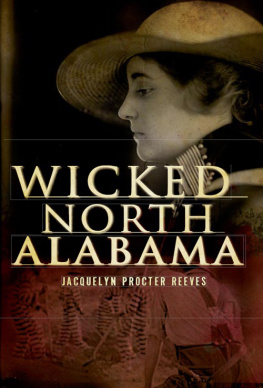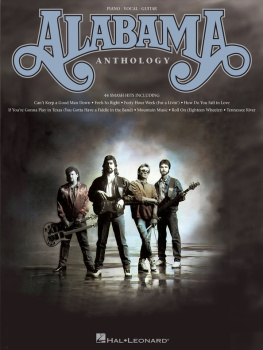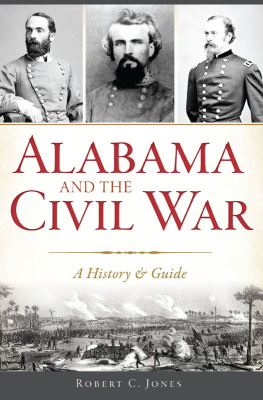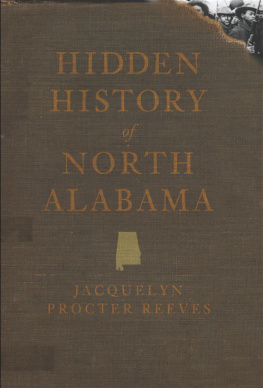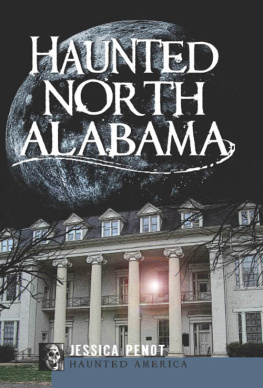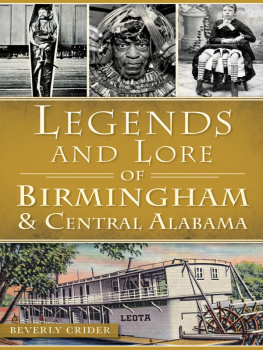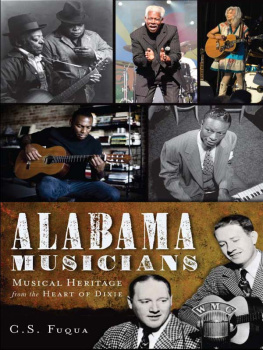WICKED NORTH ALABAMA
JACQUELYN PROCTER REEVES

Published by The History Press
Charleston, SC 29403
www.historypress.net
Copyright 2009 by Jacquelyn Procter Reeves
All rights reserved
First published 2009
e-book edition 2011
ISBN 978.1.61423.017.2
Library of Congress Cataloging-in-Publication Data
Reeves, Jacquelyn Procter.
Wicked North Alabama / Jacquelyn Procter Reeves.
p. cm.
print edition: ISBN 978-1-59629-753-1
1. Crime--Alabama--Case studies. 2. Murder--Alabama--Case studies. 3. Criminals-
Alabama--Case studies. I. Title.
HV6793.A2R44 2009
364.1097619--dc22
2009033684
Notice: The information in this book is true and complete to the best of our knowledge. It is offered without guarantee on the part of the author or The History Press. The author and The History Press disclaim all liability in connection with the use of this book.
All rights reserved. No part of this book may be reproduced or transmitted in any form whatsoever without prior written permission from the publisher except in the case of brief quotations embodied in critical articles and reviews.
To my husband, Robert Reeves.
C ONTENTS
P REFACE
T he beauty of North Alabama and the generations of cultured hospitality take many people by surprise when they have occasion to visit. It is not the home of backward hillbillies as is sometimes portrayed by Hollywood. yet the residents of Alabama are in no hurry to change that image for fear of an invasion by those who are not like-minded. It is a peaceful, friendly, historic and progressive area of the South. Members of the Daughters of the American Revolution or United Daughters of the Confederacy now fight battles as courtroom lawyers, and southern English is spoken among rocket scientists. Still, North Alabama retains the charm and folksiness that make people want to invite neighbors over to eat pecan pie and watch the fireflies while remembering back when.
Occasionally, the idyllic lives of these civic-minded people are interrupted by the tragic consequences of greed, lust, revenge and murder. Details are discussed at the beauty parlor, in the gyms and at the downtown cafes. These are the stories that inspire movies and songs. Some crimes remain officially unsolved, though the killers are known to one and all, and others continue to make the news decades later.
Many people have gone out of their way to help me find the interesting details that make these stories so memorable: Rane Pruitt, Thomas Hutchens, Judge Bill Page, former district attorney Fred Simpson, Chuck and Jo Schaffer, Jim and Linda Maples, Jere Trent, Jerry Knight, Beverly Jolly, Dr. Pete Sparks, Charles (Chuck) Rice and Susanna Leberman. Thank you to all of these people and to my husband, Robert Reeves, who travels with me through crime scenes and cemeteries, archives and police stations, in order to feed my obsession with leaving no stone unturned. Robert is truly my partner in crime.
R OAD G ANG M URDER
J ohnny Beecher was born in Wetumpka, Alabama, in 1933 to a mother who later died of syphilis. His father, who was not married to his mother, was a convicted murderer, adding yet another strike against him. Johnny was from a poor black family, and like most folks born into poverty, any hope of a promising future was a dream that belonged to others. People of all races in his socioeconomic situation simply existed, until the day they died.
When he was thirteen, Johnny moved to Buffalo, New York, to live with his father, but while there, he was arrested for stealing a bike. At some point, he was placed into foster care. Johnny was examined by doctors who diagnosed him as mentally unstable. In addition, he was a deviate and tortured his foster brother repeatedly, sexually and otherwise. When he returned to Alabama, Johnny was arrested for burglary. By the young age of seventeen, he had become fully entrenched in a long and extensive life of crime and imprisonment. He escaped from prison several times, adding more time onto each sentence. He had already been in and out of prison several times when he raped a woman in Clarke County in 1960. It looked like Johnny would spend his life in the Alabama prison system, but things were about to go from bad to worse.
In February 1964, Johnny Beecher was sent to Camp Scottsboro, where prisoners worked in the daytime and slept at night in a makeshift compound surrounded by a barbed-wire fence. The prison road gangs, not to be confused with chain gangs, were sent to help implement improvements in rural Jackson County, where residents lacked such luxuries as telephones, indoor plumbing and paved roads.
The residents who lived around Camp Scottsboro appreciated the work of the men in the road gangs, as well they should have. They welcomed the arrival of improvements already enjoyed by their urban friends and appreciated the labors of the incarcerated men. The good folks of Jackson County also felt sorry for the men, who suffered through long days of hard labor in the elements, and frequently gave them something cool to drink, a pack of cigarettes or a friendly word. In fact, in many rural parts of Alabama, it was customary for a smoker to toss out what was left of his or her pack of cigarettes as he or she drove past the prisoners swinging sling blades from side to side to cut the weeds away from the roads and railroads.
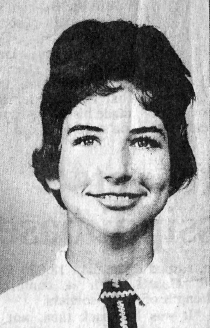
Martha Jane Chisenall. Fred Simpson collection.
Martha Jane Humphreys Chisenall was one of the residents whose kindness to the prisoners was well known. Occasionally, she gave them soda, cold milk or cookies, and even on the days when she had nothing to offer, she never failed to wave or smile. She would often see the prisoners when she was hanging laundry or sitting on her porch. One in particular seemed to be studying Martha, unbeknownst to her.
Johnny Beecher had been watching Martha ever since he first arrived at Camp Scottsboro. He talked about the pretty young white woman with the other convicts and told them he thought she liked him. He would look in the direction of her house at night and wonder what she was doing. He made one comment to another prisoner in early June 1964 that seemed somewhat odd. Perhaps he was thinking aloud when he said, That scroungy bitch in that house is not worth dying for. He also said that she appeared to be afflicted or messed up on one side.
Martha Chisenall was born in Cleveland, Tennessee. She had polio when she was young and it left lasting effects on her body. Her left hand was drawn, and at one time she had worn a brace. Pictures of Martha reveal a very attractive young woman with a sly grin and a twinkle in her blue eyes. Martha and her husband, Raymond Chisenall, were married in the Jackson County Courthouse on November 22, 1963. Sadly, the day of their celebration was a traumatic one for the nation; it was the day of President Kennedys assassination. The Chisenalls lived near the River Road in Jackson County in a small rental house owned by Beulah Roper. The pretty country home had a front porch, two bedrooms and a kitchen.
On the morning of June 15, 1964, the hot sun rose early in the Alabama sky. The crickets nocturnal songs quieted as the sun ascended. As they stopped chirping with the early morning light, the quiet peace was replaced with the clicking sound of cicadas, each competing to be heard over all others. It was the week before the official beginning of summer, but the temperature outside indicated that it had already arrived. Martha had fixed an enormous breakfast for her husband, a logger, and kissed him goodbye as he left for work shortly after 6:00 a.m.

